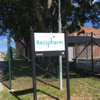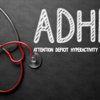Fritextsökning
Artiklar per år
Innehållstyper
-

Nocebo – the evil twin that makes you feel worse
The placebo effect is well known in healthcare, but not so its opposite: nocebo. “The effect is small, but it can have major repercussions,” says Uppsala researcher Charlotte Blease, co-author of a book on the phenomenon.
-

The Covid pandemic accelerated the development of cancer vaccine
The Covid pandemic gave a major boost to the vaccine field. The Danish biotech company Expres2ion Biotechnologies, which is developing a vaccine against breast cancer, testifies to this.
-

KI:s frysfiasko utrett: En kedja av brister
Det var en kedja av både tekniska och organisatoriska brister som tillsammans orsakade fryshaveriet på Karolinska institutet under julhelgen, då över 47 000 prover förstördes. Det har en intern utredning kommit fram till.
-

Study: Popular diabetes treatment is not associated with thyroid cancer
Concerns raised about an association between GLP-1 analogues, used to treat diabetes and obesity, and an increased risk of thyroid cancer are not supported by an extensive Scandinavian study.
-

AAX Biotech vinnare i skandinavisk tävling
AAX Biotech är vinnare i Abbvies program, Abbvie Scandinavia Golden Ticket. Vinsten innebär tillgång till resurser och mentorskap.
-

Assignment: Facilitate the retention of foreign researchers
A newly appointed public inquiry is to develop measures to make attracting and retaining foreign doctoral students and researchers in Sweden easier.
-

Beta-blockers are often given unnecessarily, a study finds – “This will affect future practice”
Patients who have suffered a minor heart attack do not benefit from beta-blockers, according to a major new study that may change guidelines for cardiac care.
-

Recipharm divests five Swedish plants
Swedish contract manufacturer Recipharm is selling its facilities in Solna, Strängnäs, Höganäs, Karlskoga and Uppsala OTC Development to US private equity company Blue Wolf Capital Partners.
-

Settlement of cancer allegations against blockbuster drug
French pharmaceutical company Sanofi has reached a principal agreement in the US on around 4,000 of the cases in which its now withdrawn blockbuster heartburn drug Zantac allegedly had caused cancer.
-

Ny kurs ska väcka passion för statistik – ”Många får panik”
Kan man förstå och tolka kliniska studier – utan att vara bra på matte? Ja, menar Anna Törner som tillsammans med Ingrid Lönnstedt skapat en onlinekurs för att fler ska våga närma sig statistiska metoder.
-

Betablockerare ges ofta i onödan enligt stor studie – ”Kommer påverka framtida praxis”
Patienter som drabbats av en mindre hjärtinfarkt har ingen nytta av betablockerare, enligt en ny stor studie som kan komma att ändra riktlinjer för hjärtsjukvård.
-

Positiva resultat i ny cancerstudie med Imfinzi
Läkemedelsbolaget Astra Zenecas läkemedel Imfinzi (durvalumab), förbättrade signifikant den totala överlevnaden och progressionsfri överlevnad för patienter med småcellig lungcancer i begränsad fas i fas III-studien Adriatic.
-

Recipharm säljer av fem svenska anläggningar
Svenska kontraktstillverkaren Recipharm säljer sina anläggningar i Solna, Strängnäs, Höganäs, Karlskoga samt Uppsala OTC Development till det amerikanska private equity-bolaget Blue Wolf Capital Partners.
-

Radioactive tracer to measure effect of drug towards Crohn’s disease
A radioactive tracer developed by Astra Zeneca and the Karolinska Institutet may play a major role for patients with Crohn's disease. That is the belief of Maria Belvisi at AstraZeneca.
-

Jan Holmgren to receive award for the development of cholera vaccine
Researcher Jan Holmgren is being awarded for the development of the first effective drinkable cholera vaccine. The award is given by the International Vaccine Institute (IVI) and vaccine company SK bioscience.
-

The life science strategy – what the industry wants
The process of updating the national life science strategy has begun at the government’s life science office. According to industry stakeholders, Sweden’s competitiveness, the accessibility of health data and the integration of innovation in healthcare are some of the points that are essential to review.
-

”We need compatibility“
Penilla Gunther, founder of Fokus Patient and chair of the European Patient Safety Foundation, hopes that the forthcoming life science strategy will focus on efficient and secure management of patient data and equal access to medicines.
-

Ny rapport: Bolagen fortsatt optimistiska om svensk hälsoexport
Trots oro i omvärlden och osäkerhet kring världsekonomin råder optimism bland svenska företag inom hälsoexport, enligt en ny rapport.
-

Lista: Big pharma-bolagen som satsar mest på R&D
Merparten av de stora globala läkemedelsjättarna ökade sina forsknings- och utvecklingsbudgetar i fjol, men ett av dem sticker ut rejält, enligt en ny sammanställning.
-

Nya rekommendationer vid adhd och autism – ”Stort steg i rätt riktning”
De nya nationella riktlinjer för adhd och autism innehåller för första gången rekommendationer om kognitivt stöd – och en ändrad rekommendation om sömntäcken för vuxna.
-

Anna Törner: ”Orphan Designation – the "petite robe noire" of drug development”
It is easy to cling to various regulatory incentives, like orphan designation, and other expedited pathways, without understanding what they truly mean or whether they are indeed right (or wrong) for the current project, Anna Törner writes in a column.
-

Specific proposals and targets top the universities’ desired priorities
What are the universities’ expectations for the update of the national life science strategy? Life Science Sweden posed the question to representatives from Karolinska Institutet and Sahlgrenska Academy.
-

Nytt miljardförvärv stärker Astra Zeneca inom radiofarmaka
Astra Zeneca satsar inom radioaktiva läkemedel genom att köpa Fusion Pharmaceuticals för upp till 2,4 miljarder dollar, motsvarande drygt 25 miljarder kronor.
-

Anna Törner: ”Orphan designation läkemedelsutvecklingens ’petite robe noire’”
Det är så lätt att klamra sig fast vid olika regulatoriska incitament, som orphan designation, utan att egentligen veta vad de innebär och på vilket sätt de kan vara rätt (eller fel), skriver Anna Törner i en krönika.